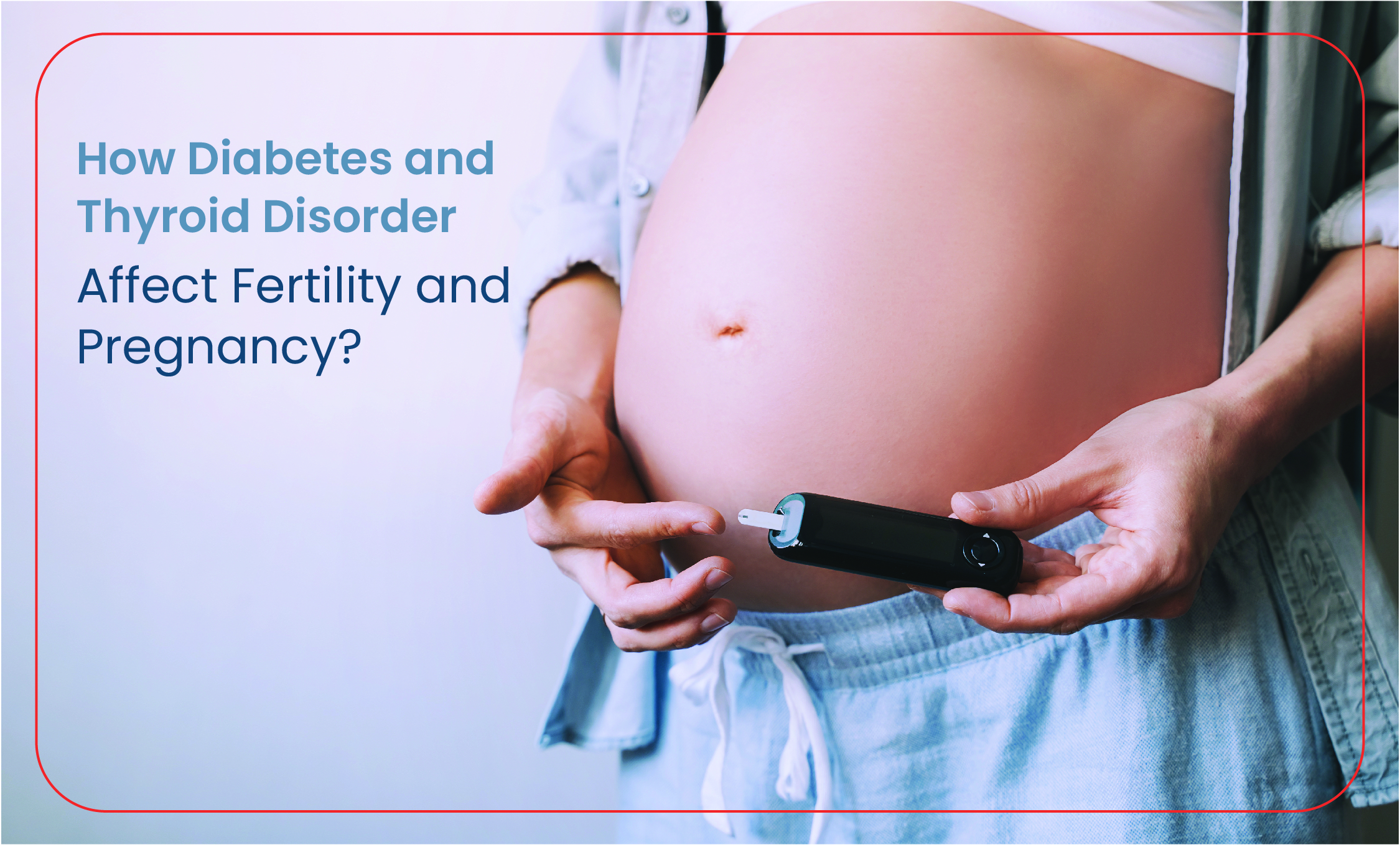
When planning for a baby, every couple hopes for a smooth and healthy journey into parenthood. However, some medical conditions can silently interfere with this journey. Two such conditions—diabetes and thyroid disorders—can significantly impact fertility and pregnancy in both women and men.
Understanding how these conditions affect your reproductive health can help you take better control and seek timely guidance from expert Dr. Shreya Sharma widely known as the best endocrinologist in Dehradun, best diabetes specialist in Dehradun, and thyroid specialist in Dehradun.
Hormones play a crucial role in fertility. Both diabetes and thyroid disorders are endocrine conditions, meaning they involve hormonal imbalances. Any disruption in hormone levels can affect ovulation in women, sperm production in men, and the overall ability to conceive.
What is
Diabetes?
Diabetes is a
condition where the body either doesn't produce enough insulin (Type 1) or cannot
effectively use the insulin it produces (Type 2). Insulin is the hormone that regulates blood sugar
(glucose) levels.
A: Impact of Diabetes on Female Fertility:
Dr. Shreya Sharma, the best diabetes specialist in Dehradun, strongly emphasizes pre-conception counseling for diabetic women. She advises that women work on getting their HbA1c (average blood sugar) levels to a safe range before trying for a baby.
B: Impact of Diabetes on Male Fertility:
Many people don’t realize that diabetes affects men too. In men, diabetes can lead to:
What are Thyroid Disorders?
The thyroid is a small butterfly-shaped gland in the neck. It produces hormones that regulate metabolism, growth, and development.
Thyroid disorders include:
Both conditions can significantly affect fertility and pregnancy.
A: Hypothyroidism and Fertility in Women:
In hypothyroidism, the thyroid doesn’t produce enough hormones. This condition is more common in women and can lead to:
B: Hyperthyroidism and Fertility in Women:
In In hyperthyroidism, the thyroid gland produces too much hormone. This condition may cause:
C: Thyroid and Pregnancy Complications:
Even if a woman with thyroid dysfunction conceives, she may face challenges such as:
According to Dr. Shreya Sharma, a renowned thyroid specialist in Dehradun, early diagnosis and management of thyroid problems—especially in the first trimester—are vital for a healthy pregnancy outcome.
The good news? Both conditions are manageable with the right guidance.
If natural conception isn’t successful, you still have options:
If natural Dr. Shreya Sharma, the best diabetes specialist in Dehradun, often works with fertility experts to optimize health conditions before and during these treatments.
Diabetes and thyroid disorders may create hurdles in the journey toward parenthood—but they don’t have to stop you. With timely intervention, proper guidance, and consistent care, you can overcome these challenges.
Whether you're planning to conceive, are already pregnant, or facing fertility issues, expert support is crucial. Trust the experience and compassion of specialists like Dr. Shreya Sharma, the best endocrinologist in Dehradun, who is dedicated to helping couples achieve their dreams of a healthy pregnancy.